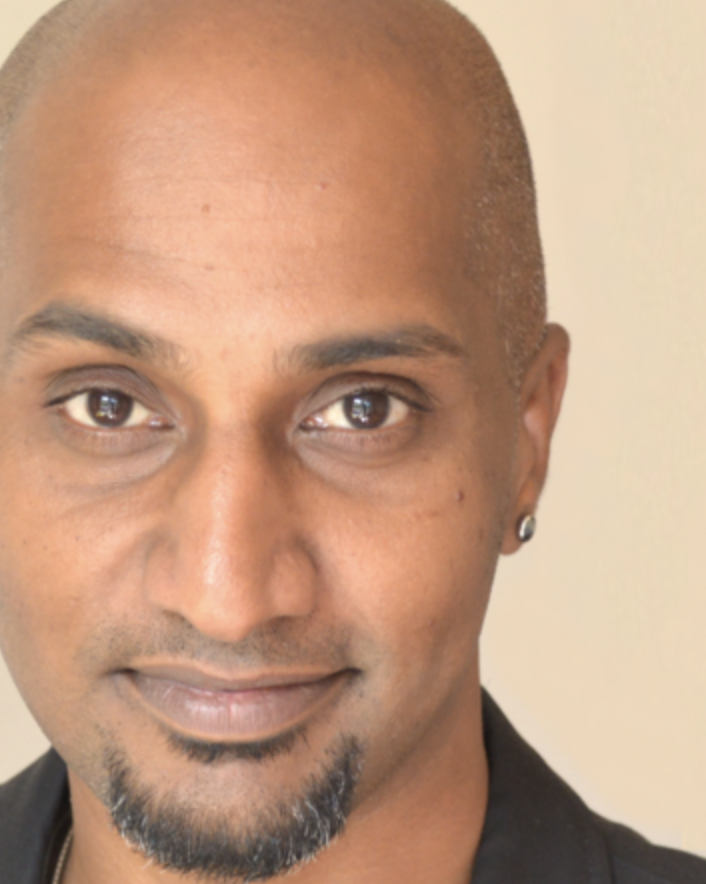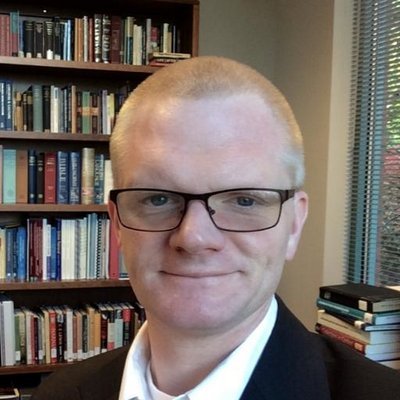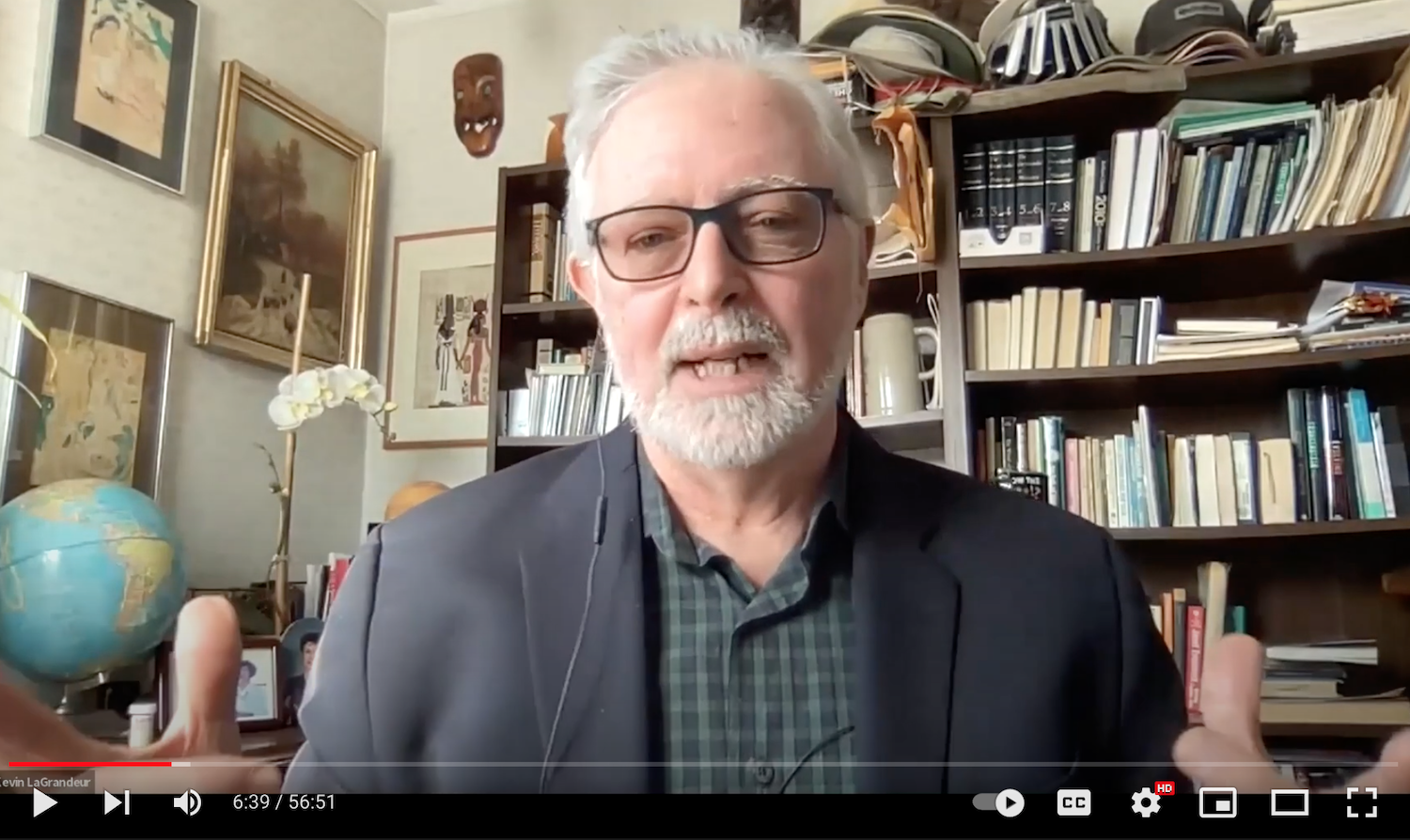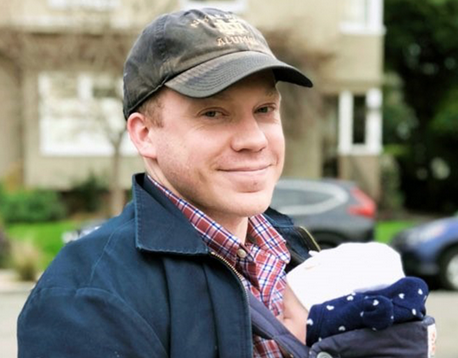
What We Learn in Designing Robots that Care
Should we be looking to robots to care for the aged and infirm? Robotics technology and the imperative of economics is certainly pointing that way.’
"We're going to have to think of robot-assisted care as a labor issue, an economic issue and a social issue,” says Thomas Arnold, an expert on human-robot interaction at Tufts University. Arriving at robotics via a path that included a Ph.D. in religious studies, he’s a Visiting Scholar of Technology Ethics.

Transcending Humanity
We spent an hour with Robert Geraci and UU friends in a compelling conversation directed toward where AI is leading us. It’s a challenge to wrap our heads around the astounding prospects of AI and neurotech devices that are now directly connecting human minds and AI agents, but Professor Geraci helps us get there.

AI’s Intrusion into Perfection
Broadly interested in how AI will impact humanity in "positive, negative, or neutral ways," Raja Kanuri specifically is exploring the relationship between the higher eternal self and the material self and the way AI mediates between the two.

Louis Brandeis and the BCI
Louis Brandeis was our great thinker in translating the constitutional values of privacy and free speech in a technological age. What would he make of the issues of privacy raised by the brain-computer interface?

The BCI at 50
The first time anyone heard of the “brain-computer interface” was in June 1973 when UCLA researcher Jacques Vidal published “Toward Direct Brain-Computer Communication” in the Annual Review of Biophysics and Bioengineering. Hitting the half-century mark makes this the perfect time to reflect on progress made thus far and advances soon to be made.

A Day to Honor Our Machines
In Temples of Modernity, Robert Geraci reports on the remarkable fusion of religion and science that the Hindu faith community achieves in Ayudha Puja, the ‘rite of implements’ that started in the 12th century. The festival has evolved into a moment "when scientists, engineers, and everyday people allow science, technology, and religion to overlap, to become a single practice,” he writes.

AI, Protein Folding, and the 'Interdependent Web'
In AI’s most impressive demonstration yet of its problem-solving power, DeepMind’s AlphaFold has generated maps of more than 200 million proteins, the basic building blocks of life. This feat will contribute greatly to science’s ability to develop new drugs and therapies. For Unitarian Universalists, it deepens our understanding of the “interdependent web of all existence” that we celebrate in our Seventh Principle.

The Brain Online: Here Come the 'Smartcaps'
As miniature EEG and fMRI machines take their place on more and more heads, Duke philosopher and law professor Nita Fahaney says it's time to engage in a "battle for our brains."
The 70,000 thoughts we have daily are becoming more and more transparent. If we’re to keep our thoughts our own, we’ll have to fight for our neurorights.

AI and the Breath of God
"The breath -- or spirit -- of God works in unexpected ways, so I don't want to minimize the potential importance of the milestone that LaMDA represented," says Mike Langford, an ordained Presbyterian pastor and Professor of Theology, Discipleship and Ministry at Seattle Pacific University.
"But I'm not ready to view AI as a peer that deserves the rights of human personhood — though I'm more open to that idea today than I was ten years ago."

The Apocalyptic Imagination
"Apocalyptic literature can help us see a greater hope that's both realistic and radical,” says Michael Paulus, co-author of the just-published AI, Faith and the Future. “It's a unique way of looking at the world that emerged out of oppressed Jewish communities who said, 'This is not the way the world is supposed to be. This is not the world that God promises. Where is God in this world?'"

AI and Transformation
"One of my deep theological questions about AI is whether the people who are developing it can even conceive of an expansion of our social imagination," says Brian Brock, Professor of Moral and Practical Theology at the University of Aberdeen. "Without it, I think we're bound to remake the human in ways that are violent, especially against those who are least able to protect themselves.”

The Making of 'Moral AI'
“I consider AI to have spirituality when it can participate in … a community and share goals, purposes and mutual interpretations with humans and other AI systems,” says Mark Graves, who has just joined AI and Faith as a Research Fellow. “At its foundation is the ability to strive toward some committed moral idea with others in mutual interpretation.”

'Reverse Mimesis': Exploring the Interplay Between AI and Human
"As a species, we have moved from creating intelligent tools in our own functional image to having those tools execute human functions so well that they're forcing us to remake ourselves in their machine image,” says Kevin LaGrandeur, emeritus professor of English at New York Institute of Technology and co-editor with James Hughes of Surviving the Machine Age: Intelligent Technology and the Transformation of Human Work.

A Conversation with Levi Checketts
Raised in the Church of Jesus Christ of Latter-day Saints, Levi Checketts has evolved into a Catholic social ethicist. He broke new theological ground with a Ph.D. thesis focused on the ethics of consciousness uploading.

A 'Fitbit for Your Skull'
Elon Musk promises a “whole brain interface” with AI by 2045. We take this prediction seriously. We hope you will, too.
